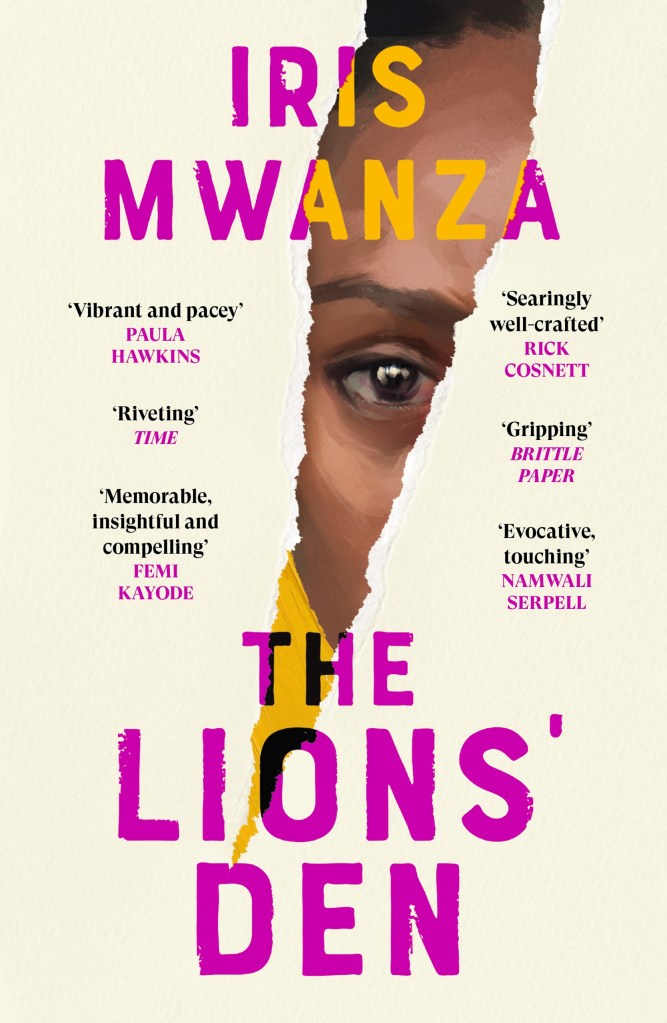Books: ‘Zambia hasn’t evolved on LGBTQ+ acceptance, it’s going in the opposite direction’
Iris Mwanza’s debut novel The Lions’ Den is inspired by a real criminal case from Zambia that has stayed with her since the 1990s.
The book follows rookie lawyer Grace Zulu, who takes on the pro bono defence of Willbess “Bessy” Mulenga, arrested for an offence “against nature” and facing 14 years in prison.
For Mwanza, who grew up in Zambia and now works in the US as a staunch advocate for gender equality, the case is emblematic of wider struggles against injustice.
“Police brutality is a manifestation of impunity,” she tells PinkNews. “It’s happening everywhere, not just in Zambia or developing countries, it’s happening right here in this country [US]. And it’s the most vulnerable who suffer the most. I wanted to bring it to the fore unflinchingly.”
A climate of fear
Same-sex sexual activity remains prohibited under Zambia’s Penal Code, carrying a penalty of up to 14 years’ imprisonment. However, as noted by the Human Dignity Trust, a 2019 case saw two gay men convicted and sentenced to 15 years’ imprisonment for same-sex sexual activity.
“I feel like human rights are universal, and we all need to be fighting for them,” Mwanza says. “My motivation for writing the book was to show the impact of discrimination on families, communities, societies and the nation, and it’s bad. We are going in the opposite direction.”
She recalls that while living in Zambia she witnessed a “deeply homophobic society”, but law school opened her eyes to the fact that “almost all constitutions in the world guarantee fundamental human rights, so not only is it morally wrong, it’s legally wrong”.
On her last trip home, Mwanza met clandestinely with LGBTQ+ Zambians to protect their identities. “People have a legitimate fear of prosecution, but also persecution societally. They told me what hurt most was when their communities wouldn’t accept them.”

She recalled having “mixed feelings” upon holding the illicit book reading: “I was incredibly proud to be able to have a conversation with the community in Zambia and get honest feedback. It felt very gratifying to hear that they felt seen and appreciated that I’d written the book.
You may like to watch
“But it was also very sad, and deeply heartbreaking, that I grew up in a society that has not evolved – that’s actually going in the opposite direction, where people are afraid to just live their lives as human beings.”
‘Everybody has fundamental rights’
One thread running through The Lions’ Den is the influence of conservative religious movements. “Fundamentalist or deeply evangelistic religions can give cover to obnoxious, unacceptable behaviour,” Mwanza says. “It’s very systemic.”
Of Zambia’s regressive laws, she is blunt: “It’s baffling, especially when you see younger people being super conservative and not open-minded.” She links this to a wider culture of polarisation, both online and in politics: “The more extreme you are, the more responses you attract. Politicians take extreme positions to get attention.”
Mwanza is equally concerned by developments in the US, where she says the “gender space” is becoming politicised. “A lot of people of colour are leaving their positions because they don’t feel supported, or they were hired under DEI,” she says.
But she finds hope in young people: “They’re fighting and they’re willing to fight. The question is: how do we further empower the next generation to do things better than we did? We’ve taken things for granted,” she adds, pointing to the2022 overturning of Roe v Wade.
“I don’t think people really understand the consequences of an authoritarian government, but when everyone’s rights start getting stripped away, that’s another thing. Everybody has fundamental rights. It isn’t about your own individual prejudices, it’s about us all being human beings, and we all need and deserve protection.”